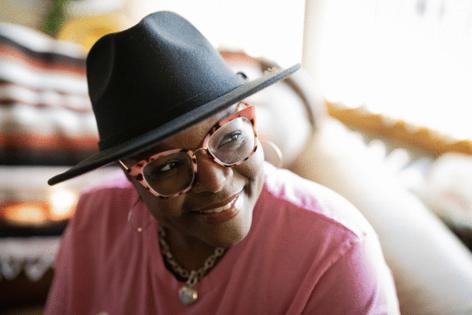Breast cancer test may make bad chemotherapy recommendations for Black patients, study shows
Published in Women
CHICAGO -- While the rest of the world was in the throes of the pandemic, Valletta Howard was wrapping her mind around a breast cancer diagnosis.
After finding a lump in her left breast in April 2021, she confirmed it with a mammogram and ultrasound in May 2021. It was invasive ductal carcinoma, grade 2, she recalled. Two weeks later, Howard underwent outpatient surgery to have it removed. She was optimistic that she wouldn’t have to endure chemotherapy or radiation. But the medical professionals sent the tissue sample out for testing, and chemotherapy and radiation became a reality.
“It was a big shock. I was not ready for that due to the fact in October 2020, my mom was diagnosed with pancreatic cancer. So from October 2020 up until May, when I found out I had breast cancer, I was helping her go through her treatment,” Howard said. “(Initially) she was happy that I didn’t have to go through chemo because she had gone through it herself. Then when I had to start chemo, she started taking care of me. When I found out I had to have chemo, my mom was devastated because she didn’t want me to go through what she had went through.”
The Austin resident endured chemo once a week, every other week, from August through December of 2021, and 30 days of radiation four days a week after that.
On the heels of Howard’s cancer journey, Dr. Kent Hoskins, professor of oncology at University of Illinois Chicago, wants to make sure a test that’s often used to decide whether breast cancer patients should get chemotherapy is as effective for Black women as it is for other populations.
Hoskins, the senior author of a recent study published in the Journal of the National Comprehensive Cancer Network, and other researchers found the oncotype test, which tests tumor tissue for a group of 21 genes, could be problematic. The commonly ordered biomarker test is used to guide doctors’ recommendations for patients with estrogen receptor-positive breast cancer and helps identify which tumors are likely to be most aggressive; that translates to who makes a good candidate for chemotherapy. Hoskins said such a test may be making bad recommendations for some Black women, leading them to forgo chemotherapy when it might have helped.
“We know there is underrepresentation of Black women in trials that were used to develop this test; we know that Black women are more likely to have biologically aggressive tumors and that there are differences in tumor biology,” Hoskins said. “That concerns us that maybe this test is not fully and accurately reflecting prognoses for Black women.”
Researchers conducted analyses on a national database that included test results and death records for more than 70,000 women with early-stage, estrogen receptor-positive tumors. Although more research needs to be done, the exploratory investigation found the test’s cutoff point for recommending chemotherapy for Black women should be lowered.
Researchers and Hoskins suspect the cause of the treatment gap is due to Black women’s tumors being less likely to respond to estrogen-blocking pills than tumors in other women. So chemotherapy would help improve outcomes for Black women more than it would for women who benefit from the pills alone, Hoskins said.
The UIC team is continuing to add to the research. Previous research found that although Black women are more likely than white women to get triple-negative breast cancer, they aren’t more likely to die from it. Yet they are more likely to die from the more common estrogen-receptor-positive form. And while much attention has been paid to the negative outcomes for Black women who have triple-negative breast cancer, that type of cancer makes up only about 20% of breast cancer cases for Black women, Hoskins said.
...continued
©2024 Chicago Tribune. Visit at chicagotribune.com. Distributed by Tribune Content Agency, LLC.







Comments